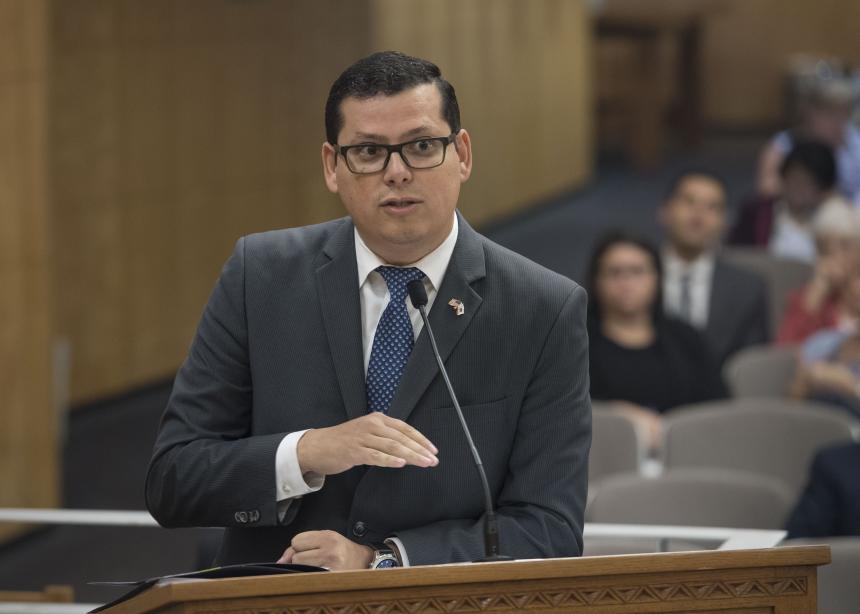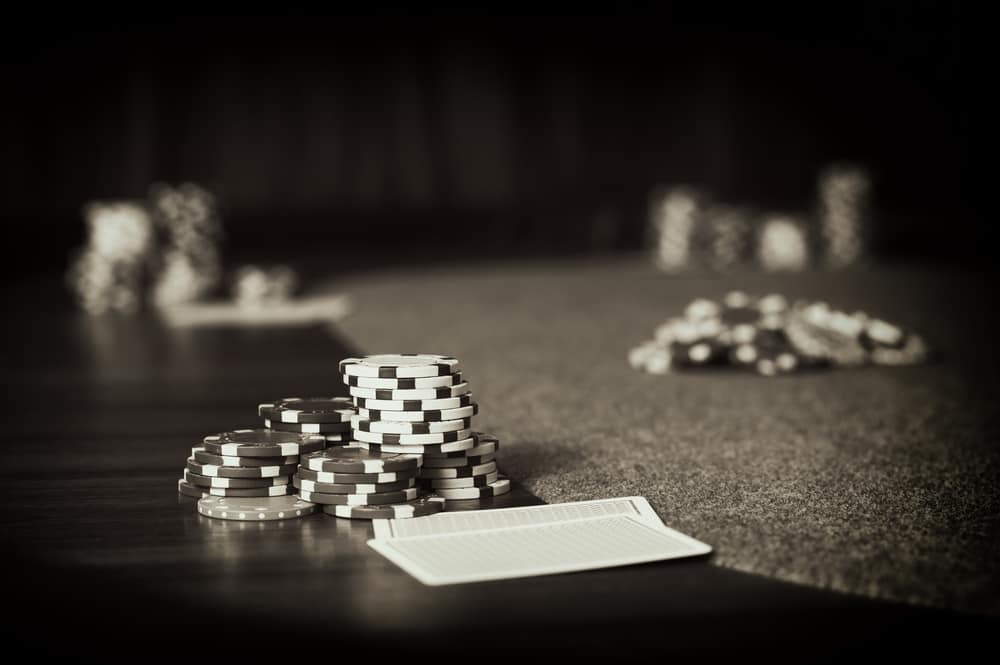Illegal Gambling Penal Code
Gaming chips may be used on the gaming floor by a patron of a gambling establishment, as defined in subdivision (o) of Section 19805 of the Business and Professions Code, to pay for food and beverage items that are served at the table. (Amended by Stats. (SB 1171) Effective January 1, 2013.) 336.9. Act 196, Session Laws 1990, added §712-1222.5 which makes it illegal to promote gambling aboard ships. The legislature found that intrastate gambling junkets would be detrimental to the State's family oriented tourist industry. House Standing Committee Report No. Whoever conducts, finances, manages, supervises, directs, or owns all or part of an illegal gambling business shall be fined under this title or imprisoned not more than five years, or both. (b) As used in this section— (1) “ illegal gambling business ” means a gambling business which—.
§712-1230 Forfeiture of property used in illegal gambling. Any gambling device, paraphernalia used on fighting animals, or birds, implements, furniture, personal property, vehicles, vessels, aircraft, or gambling record possessed or used in violation of this part, or any money or personal property used as a bet or stake in gambling activity in violation of this part, may be ordered forfeited to the State, subject to the requirements of chapter 712A. [L 1972, c 9, pt of §1; am L 1973, c 201, pt of §1; am L 1979, c 83, §1; am L 1989, c 261, §22; am L 1992, c 57, §3]
Cross References
Surrender or forfeiture of animals, see §711-1110.5.
COMMENTARY ON §712-1230
This section restates in general terms the previous law relating to forfeiture of gambling stakes, records, and devices.[1] The forfeiture is specifically made subject to the requirements of §701-119 which embodies a single procedure for the establishment of all forfeitures declared by the Penal Code. The procedure provides, as did the previous law,[2] for the protection of innocent owners of property which is involved in the commission of an offense. Intentionally omitted are prior provisions permitting a person who loses funds gambling to sue for recovery,[3] permitting a police officer, officer, or other person to sue to recover treble damages based on the amount lost (in which case one-half went to the person so prosecuting and one-half to the state for use for public schools),[4] and voiding instruments of indebtedness used in gambling.[5] These provisions are unrealistic, seldom, if ever, invoked, and unnecessary in view of the general forfeiture provision. This section was renumbered from §712-1229 to §712-1230, by Act 201, Session Laws 1973.
Illegal Gambling Texas Penal Code
In State v. Nobuhara, 52 Haw. 319, 474 P.2d 707 (1970), the Hawaii Supreme Court ruled that certain moneys seized under a violation of former HRS §746-8, which proscribed betting on an athletic contest, could not be forfeited. The Court declared that there was no evidence to tie in the moneys with the betting activities and thus could not be forfeited under HRS §746-12.
SUPPLEMENTAL COMMENTARY ON §712-1230
Act 83, Session Laws 1979, amended this section to better define the properties which may be forfeited when used in illegal gambling. Within this context, the legislature specifically intended that 'only paraphernalia used in fighting animals and birds be susceptible to...forfeiture...as distinguished from the animals or birds themselves.' Conference Committee Report No. 60. The Act also established a preponderance of evidence standard for courts to use in determining whether forfeiture should be ordered.
Act 57, Session Laws 1992, amended this section to clarify that forfeitures of property used in illegal gambling are subject to the requirements of chapter 712A. House Standing Committee Report No. 1198-92, Senate Standing Committee Report No. 1947.
Case Notes
The State must prove the existence of a substantial connection between the currency being forfeited and the illegal activity; where $1,300 of the subject currency was substantially connected to appellant's illegal gambling activity and §712A-11(4) provides that the State need not trace the proceeds exactly, $1,300 was properly ordered forfeited to the State. 104 H. 323, 89 P.3d 823.
Where State failed to prove, by a preponderance of the evidence, that the subject currency of $1,900 seized from appellant's trousers was involved in appellant's gambling transactions, trial court erred in ordering currency forfeited to State; there was no evidence connecting currency to any illegal activity, and absent proof of a substantial connection between the illegal activity and the res, the currency was not subject to forfeiture. 104 H. 323, 89 P.3d 823.
Insufficient showing that property was integral part of illegal gambling operation. 5 H. App. 547, 705 P.2d 54.
__________
§712-1230 Commentary:
1. See former H.R.S. §§746-11, 746-12.

2. Id. §746-13.
3. Id. §746-16.
4. Id. §746-18.
5. Id. §746-19.
Title Six
CRIMES AGAINST PUBLIC MORALS
Chapter One
GAMBLING AND BETTING

Art. 195. What acts are punishable in gambling. — (a) The penalty of arresto mayor or a fine not exceeding two hundred pesos, and, in case of recidivism, the penalty of arresto mayor or a fine ranging from two hundred or six thousand pesos, shall be imposed upon:
1. Any person other than those referred to in subsections (b) and (c) who, in any manner shall directly, or indirectly take part in any game of monte, jueteng or any other form of lottery, policy, banking, or percentage game, dog races, or any other game of scheme the result of which depends wholly or chiefly upon chance or hazard; or wherein wagers consisting of money, articles of value or representative of value are made; or in the exploitation or use of any other mechanical invention or contrivance to determine by chance the loser or winner of money or any object or representative of value.
2. Any person who shall knowingly permit any form of gambling referred to in the preceding subdivision to be carried on in any unhabited or uninhabited place of any building, vessel or other means of transportation owned or controlled by him. If the place where gambling is carried on has the reputation of a gambling place or that prohibited gambling is frequently carried on therein, the culprit shall be punished by the penalty provided for in this article in its maximum period.
(b) The penalty of prision correccional in its maximum degree shall be imposed upon the maintainer, conductor, or banker in a game of jueteng or any similar game.
(c) The penalty of prision correccional in its medium degree shall be imposed upon any person who shall, knowingly and without lawful purpose, have in his possession and lottery list, paper or other matter containing letters, figures, signs or symbols which pertain to or are in any manner used in the game of jueteng or any similar game which has taken place or about to take place.
Art. 196. Importation, sale and possession of lottery tickets or advertisements. — The penalty of arresto mayor in its maximum period to prision correccional in its minimum period or a fine ranging from 200 to 2,000 pesos, or both, in the discretion of the court, shall be imposed upon any person who shall import into the Philippine Islands from any foreign place or port any lottery ticket or advertisement or, in connivance with the importer, shall sell or distribute the same.
Any person who shall knowingly and with intent to use them, have in his possession lottery tickets or advertisements, or shall sell or distribute the same without connivance with the importer of the same, shall be punished by arresto menor, or a fine not exceeding 200 pesos, or both, in the discretion of the court.
The possession of any lottery ticket or advertisement shall be prima facie evidence of an intent to sell, distribute or use the same in the Philippine Islands.

Illegal Gambling Criminal Code
Art. 197. Betting in sports contests. — The penalty of arresto menor or a fine not exceeding 200 pesos, or both, shall be imposed upon any person who shall bet money or any object or article of value or representative of value upon the result of any boxing or other sports contests.
Art. 198. Illegal betting on horse race. — The penalty of arresto menor or a fine not exceeding 200 pesos, or both, shall be imposed upon any person who except during the period allowed by law, shall be on horse races. The penalty of arresto mayor or a fine ranging from 200 to 2,000 pesos, or both, shall be imposed upon any person who, under the same circumstances, shall maintain or employ a totalizer or other device or scheme for betting on horse races or realizing any profit therefrom.

For the purposes of this article, any race held in the same day at the same place shall be held punishable as a separate offense, and if the same be committed by any partnership, corporation or association, the president and the directors or managers thereof shall be deemed to be principals in the offense if they have consented to or knowingly tolerated its commission.
Art. 199. Illegal cockfighting. — The penalty of arresto menor or a fine not exceeding 200 pesos, or both, in the discretion of the court, shall be imposed upon:
1. Any person who directly or indirectly participates in cockfights, by betting money or other valuable things, or who organizes cockfights at which bets are made, on a day other than those permitted by law.
2. Any person who directly or indirectly participates in cockfights, at a place other than a licensed cockpit.

see below for
PRESIDENTIAL DECREE NO. 1602
SIMPLIFYING AND PROVIDING STIFFER PENALTIES FOR VIOLATIONS OF PHILIPPINE GAMBLING LAWS